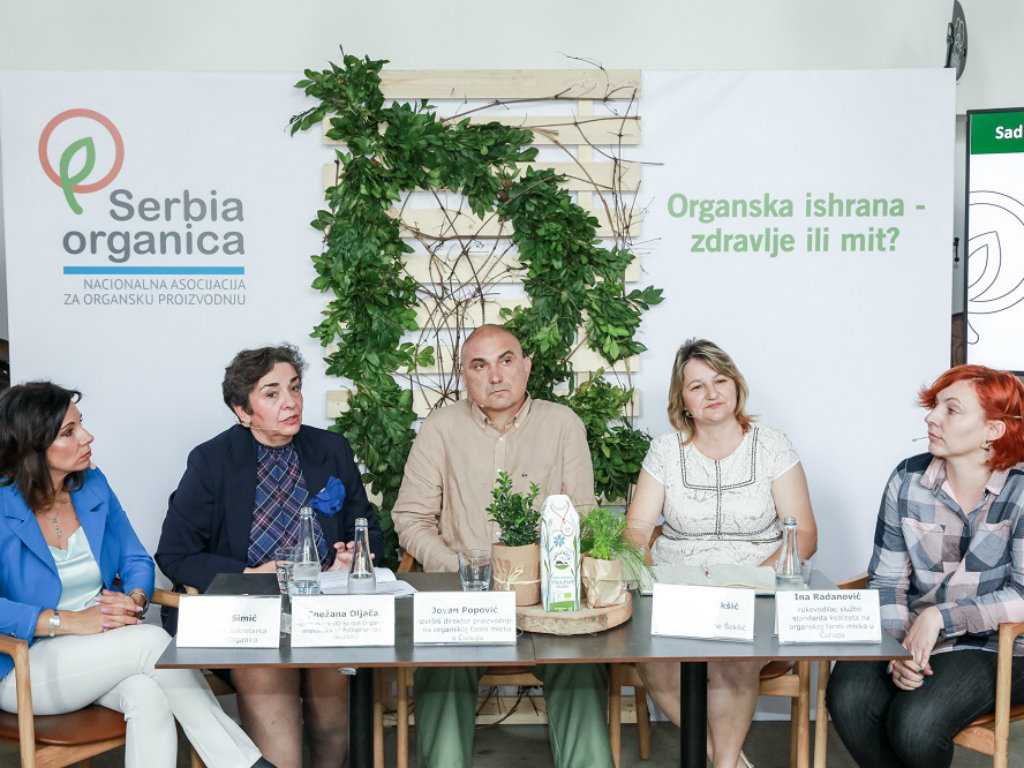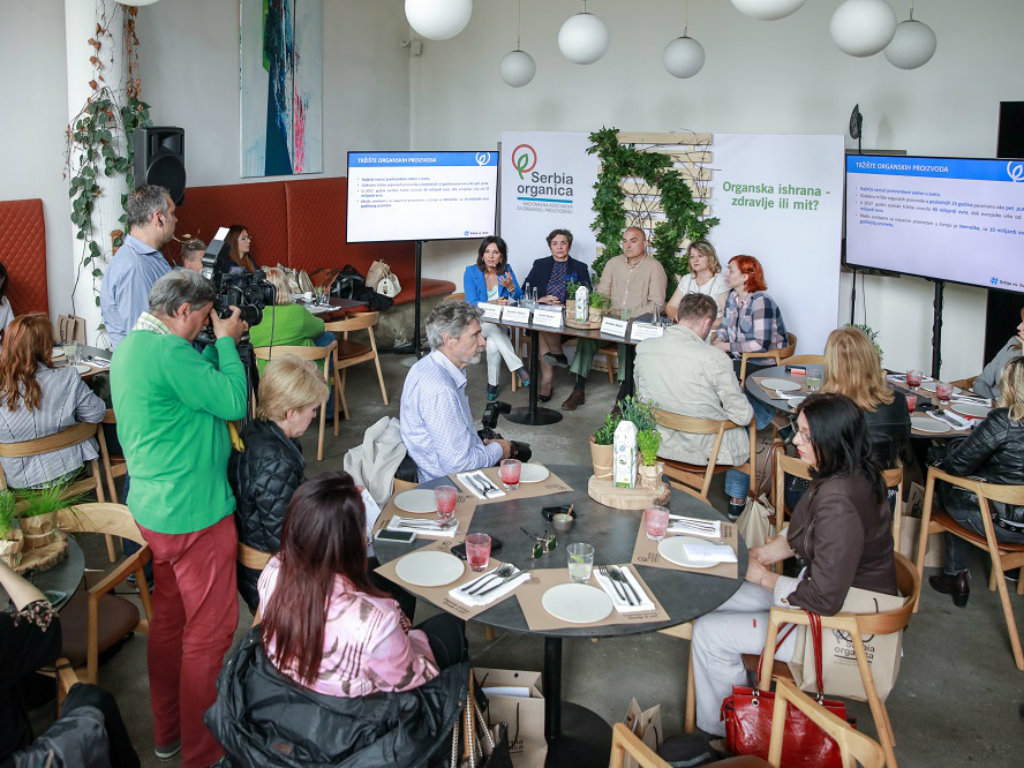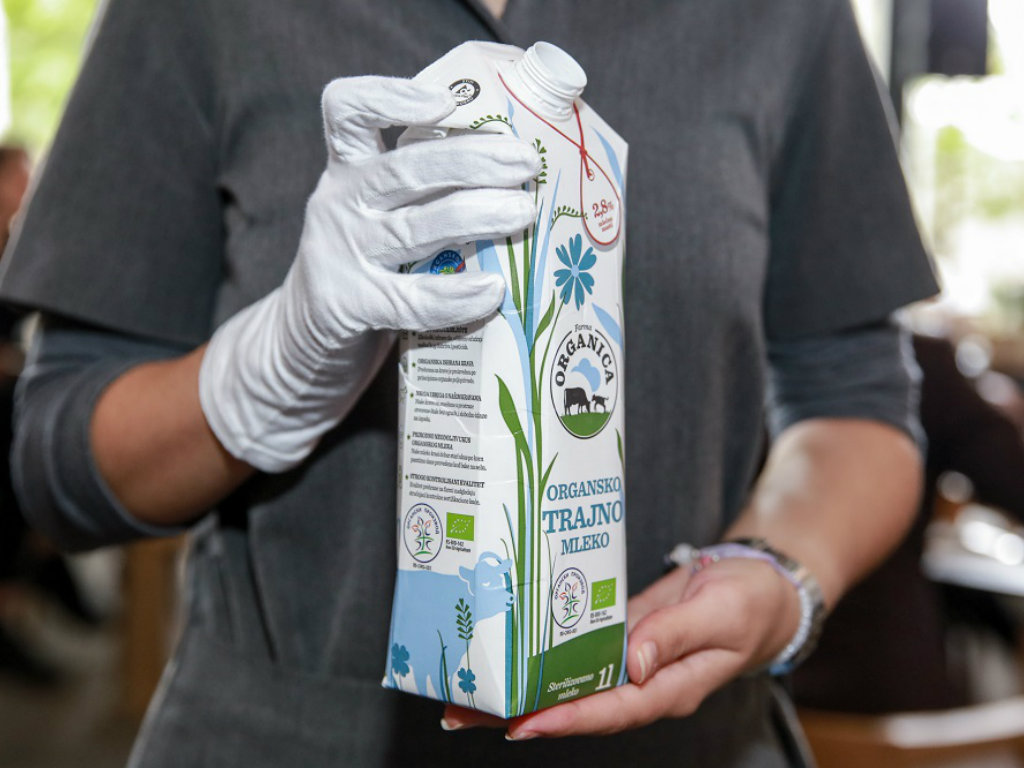More than 6,000 agriculturists in Serbia active in organic production – Nearly everything gets exported
Source: eKapija
 Thursday, 30.05.2019.
Thursday, 30.05.2019.
 15:34
15:34
 Thursday, 30.05.2019.
Thursday, 30.05.2019.
 15:34
15:34
(Photo: Serbia organica)

– The demand for organic products has also pulled the primary and the manufacturing sector in the country in the past years and the export of organic products has increased sevenfold in the past seven years, reaching the value of EUR 27.5 million – Simic pointed out.
She noted that the sector of organic production had been on the rise for decades globally, with a tendency of increasing the areas where organic cultures are grown, the number of producers and the number of states that have regulated this kind of production.
According to her, organic production areas have grown by 20% and this is the fastest growing food sector in the world, with a market which was worth EUR 90 billion in 2017 and around a hundred billion now, as the annual growth is EUR 10 billion.
– The European organic product market alone is worth EUR 37 billion, and the strongest market is the German one, which has reached the value of EUR 10 billion and an annual growth of 8-10%. It is followed by the French market, which is worth EUR 8 billion, and China and Italy follow – Ivana Simic says.
One of the obstacles to having a more intensive development of organic production in Serbia, according to her, is the still insufficiently developed awareness of these products.
– Here, organic products are still mixed with homemade, traditional products. Only 5% of the production remains in Serbia, the rest is exported – Simic says, citing as an opposite example the biggest consumers of organic products, the Swiss, who spend EUR 288 per capita on organic products each year.
Regarding sale channels, Ivana Simic says that organic products can be found at classic and organic green markets, such as the one in Block 44 in New Belgrade, at health food stores, online, but also in organic product sections in large store chains, which has largely increased the availability of organic food.
(Photo: Serbia organica)

Snezana Oljaca, a professor at the Faculty of Agriculture in Belgrade and the vice president of the managing board of Serbia Organica, emphasized that it is not easy for producers to switch to organic production and that the producer needs to make decision to go for quality over profit.
– You can’t make a quick and easy profit here, as there are production standards you need to comply with. When it comes to organic production, everything is regulated and there’s no doubt what you can or cannot use as a producer. Organically produced food is certified by bodies authorized by the state and carries a national tag for certified organic products, that is, a tag for a conversion period (the period of switching from regular to organic production) which pertains only to plant production – Oljaca pointed out.
She emphasized that, thanks to the strong rules of production, in line with natural processes, the food produced was of higher quality, healthier and, above all, safe, without residual pesticides, hormones or antibiotics.
– A study has shown that, after only five days of eating organic food, the level of pesticides in the urine of children aged 3 to 11 was considerably reduced. Furthermore, organic milk and dairy products feature 50% more nutritionally desirable omega-3 fatty acids, which is why mothers are advised to include organic milk in their children’s diet. Research has shown that the use of organic dairy products considerably reduces the risk of the occurrence of dermatitis, asthma and other allergy diseases in children under two – Snezana Oljaca said.
Organic producers of milk and vegetables also took part in the panel. They talked about organic production and the benefits of organic food.
Jovan Popovic, the executive production manager at the organic milk farm in Curug, shared his long experience in organic production.
– We produce everything we need for the feeding of livestock. With the production of around 6 million liters of raw organic milk a year and 1,000 dairy cows, our farm is the third biggest farm of organic milk in Europe and the only one in Serbia.
Popovic emphasized that the point of organic production was in having healthy products without antibiotics and hormones, but also in the long life and health of the cows.
(Photo: Serbia organica)

Their product, the Farma Organica milk, has recently been made available in supermarkets throughout Serbia and carries globally recognized quality certificates.
– Certification of organic livestock production is done once a year. Authorized certification bodies control the farm’s operations in detail in line with the local law and EU standards – explained Ina Radanovic, the head of the quality standard service at the farm in Curug.
Gordana Soksic, the owner of Soksic Bio Farm in the village of Taras near Zrenjanin, has been active in organic production of vegetables for 12 years now.
– This shows that there is a demand for organic products in Serbia – Gordana pointed out and added that 90% of their production remained in Serbia, and that the majority of the purchasers are parents of small children, athletes, vegetarians and vegans.
B. Petrovic
Tags:
organic milk farm in ÄŚurug
Bio Farm Šokšić
Ina Radanović
Jovan Popović
Gordana Šokšić
Ivana Simić
SneĹľana OljaÄŤa
Farma Organica milk
organic food
organic production
number of organic producers in Serbia
organic vegetables
Comments
Your comment
Most Important News
Full information is available only to commercial users-subscribers and it is necessary to log in.
Follow the news, tenders, grants, legal regulations and reports on our portal.
Registracija na eKapiji vam omogućava pristup potpunim informacijama i dnevnom biltenu
Naš dnevni ekonomski bilten će stizati na vašu mejl adresu krajem svakog radnog dana. Bilteni su personalizovani prema interesovanjima svakog korisnika zasebno,
uz konsultacije sa našim ekspertima.


 Izdanje Srbija
Izdanje Srbija Serbische Ausgabe
Serbische Ausgabe Izdanje BiH
Izdanje BiH Izdanje Crna Gora
Izdanje Crna Gora


 News
News







